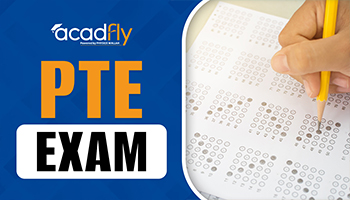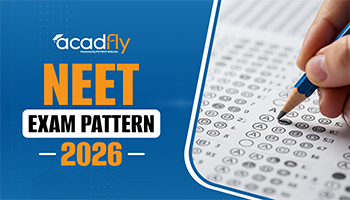

Navigating the complexities of post-graduate work permits can be challenging for international students in the United States. Understanding the duration, renewal processes, and validity of these permits is crucial for maintaining legal status and ensuring career opportunities post-graduation. This comprehensive guide explores the ins and outs of the US post-graduate work permit, including its duration, extension possibilities, and the renewal process.
What is a US Post-Graduate Work Permit?
A US Post-Graduate Work Permit, commonly known as the Optional Practical Training (OPT) for F-1 visa holders or the H-1B visa for non-student visa holders, allows international graduates to work in the United States in their field of study. The purpose of this permit is to provide recent graduates with practical work experience that complements their academic achievements.
Duration of the US Post-Graduate Work Permit
The duration of the U.S. post-graduate work permit, known as Optional Practical Training (OPT), is typically 12 months. However, students in STEM (Science, Technology, Engineering, and Mathematics) fields may qualify for a 24-month extension, giving them a total of 36 months to work in the U.S. after graduation.
Standard Duration of Post-Graduate Work Permits
The duration of a post-graduate work permit largely depends on the type of visa and the individual’s academic background. Generally, international students on F-1 visas can apply for OPT, which grants them up to 12 months of work authorization after completing their degree. This duration applies to most fields of study.
However, students who have completed a degree in a STEM (Science, Technology, Engineering, and Mathematics) field may be eligible for a 24-month extension of their OPT, bringing the total possible duration to 36 months. This extended period allows for additional work experience, which can be particularly beneficial for those looking to gain more in-depth industry knowledge or secure a more permanent position.
Understanding the H-1B Work Visa Duration
For graduates seeking employment beyond the OPT period, the H-1B visa is a viable option. This visa permits foreign nationals to work in specialty occupations for up to three years, with the possibility of an extension for an additional three years. Unlike OPT, which is a student benefit, the H-1B visa is employer-sponsored and requires a job offer from a US employer.
Summary of Work Permits Duration
|
Permit Type |
Maximum Duration |
Eligibility |
|
OPT |
12 months |
Most degrees |
|
OPT (STEM) |
36 months |
STEM degrees |
|
H-1B Visa |
3 years (extendable) |
Specialty occupations |
Extending Post-Grad Work Permit
To extend a Post-Graduation Work Permit (PGWP) in Canada, you generally cannot extend it beyond its original validity, as it is a one-time permit. However, if you are eligible for programs like the Open Work Permit or certain public policies, you may apply for additional work authorization.
Extending OPT for STEM Graduates
For graduates in STEM fields, the extension of OPT from 12 to 36 months provides a significant advantage. To qualify for this extension, students must meet certain criteria, including being employed by an employer enrolled in the E-Verify program and working in a role directly related to their field of study. The application for the STEM OPT extension should be submitted before the initial 12-month OPT expires.
Applying for an H-1B Visa
For those transitioning from OPT to an H-1B visa, the extension process involves several steps. The employer must file a petition on behalf of the employee, demonstrating that the position meets the specialty occupation criteria and that the employee possesses the required qualifications. The H-1B visa application is typically subject to an annual lottery system due to high demand.
PGWP Renewal Process
The Post-Graduation Work Permit (PGWP) cannot be renewed or extended once it expires. However, if you are eligible for a new work permit or a different immigration pathway, you can apply for that. It's important to explore options like the Canadian Experience Class (CEC) if you wish to stay and work in Canada.
Renewal of OPT
Renewal of the OPT itself is not possible, but transitioning from OPT to another work visa, such as the H-1B, is a common path. Graduates must ensure they apply for the H-1B visa before their OPT expires to avoid any gaps in employment authorization.
Transitioning from OPT to H-1B
The transition from OPT to an H-1B visa involves careful planning. Graduates should work closely with their employers to ensure all necessary documentation is prepared and submitted promptly. The H-1B petition must be filed with the US Citizenship and Immigration Services (USCIS), and the employee should maintain their legal status throughout the application process.
Work Visa Duration After Studies
After completing your studies, you may be eligible for a work visa like OPT (Optional Practical Training), which allows you to work in the U.S. for up to 12 months. For STEM graduates, this can be extended by an additional 24 months.
Understanding Post-Study Work Visa Options
After completing their studies, graduates have several work visa options to consider, including OPT and the H-1B visa. OPT provides an opportunity to gain practical experience related to their field of study, while the H-1B visa allows for longer-term employment in specialty occupations.
Impact of Visa Duration on Career Planning
The duration of a work visa significantly impacts career planning. Graduates should consider their long-term career goals and seek visa options that align with their professional aspirations. The ability to work in the US for an extended period can provide valuable experience and enhance future career prospects.
US Post-Graduate Work Visa Validity
A U.S. post-graduate work visa, like the Optional Practical Training (OPT) visa, allows international students to work in the U.S. for up to 12 months after completing their studies. STEM graduates can extend this period for an additional 24 months, making it up to 36 months in total.
Validity of OPT and H-1B Visas
The validity of post-graduate work visas depends on the specific permit and its conditions. OPT is valid for up to 12 months (or 36 months for STEM graduates), while the H-1B visa is valid for up to three years with the possibility of extension. Visa holders need to understand the terms of their permit and ensure they comply with all requirements to maintain valid status.
Compliance and Legal Considerations
Maintaining legal status while on a post-graduate work permit is essential. Graduates must adhere to visa regulations, including working in a position related to their field of study and avoiding unauthorized employment. Regular communication with the employer and immigration advisor can help navigate any issues that may arise.
Conclusion
Understanding the duration, extension options, and validity of the US post-graduate work permit is crucial for international students and recent graduates. By familiarizing themselves with the OPT and H-1B visa programs, students can better plan their career paths and make informed decisions about their work authorization status in the United States.
Frequently Asked Questions
1. How long is the US Post-Graduate Work Permit valid for?
2. Can I extend my post-graduate work permit if I’m on OPT?
3. What is the process for renewing a post-graduate work permit?
4. How does the duration of the H-1B visa compare to OPT?
5. What should I do if my post-graduate work permit is about to expire?









